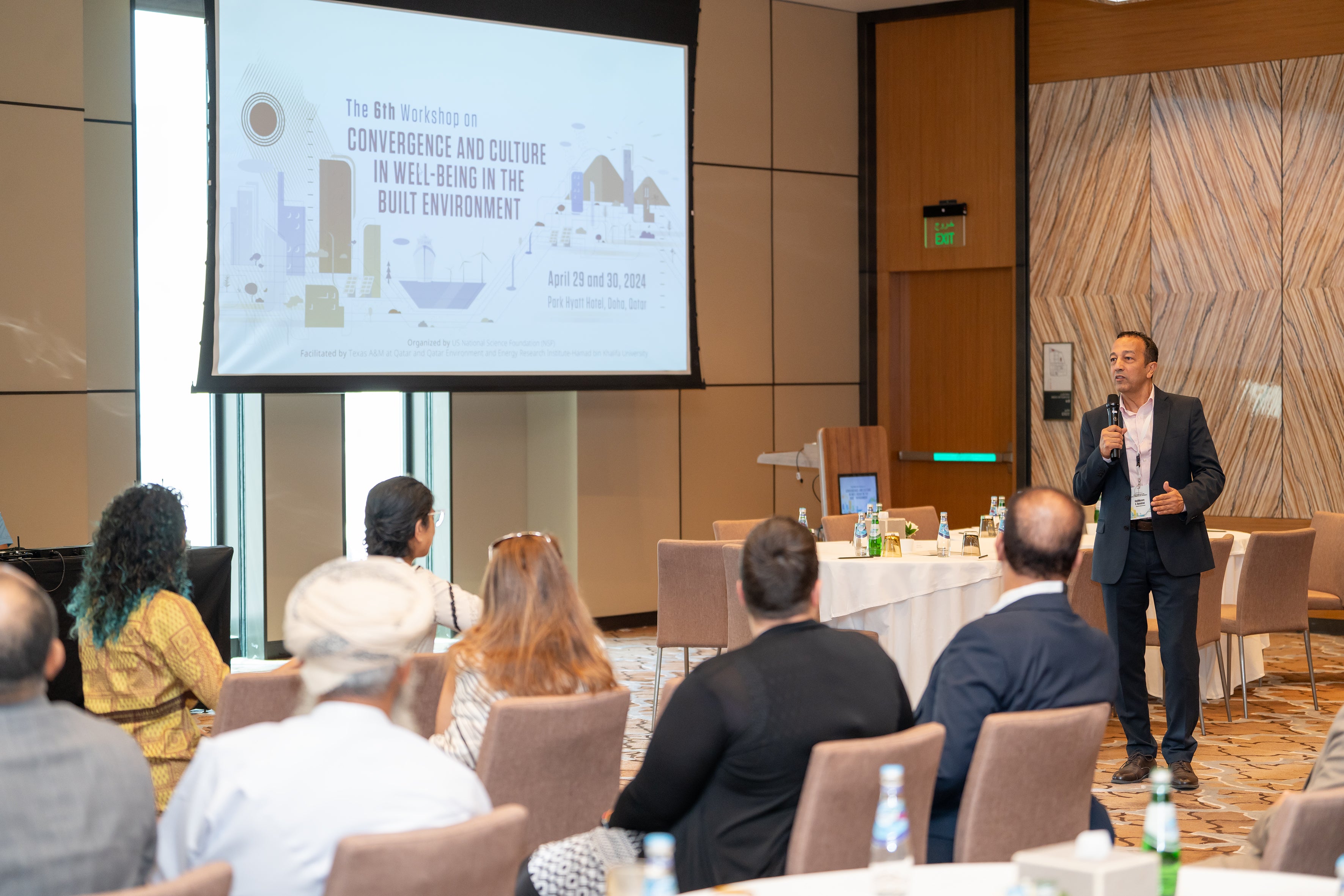Two-day event attracted participants from medicine, public health, engineering, and other sectors

Texas A&M University at Qatar (TAMU-Q) partnered with Hamad Bin Khalifa University’s (HBKU) Qatar Environment and Energy Research Institute (QEERI) to co-host and stage a U.S. National Science Foundation (NSF) workshop on enhancing wellbeing in buildings.
Held on April 29 and 30, Convergence and Cultural in Wellbeing in the Built Environment, was the sixth and final workshop in a series that aimed to connect and educate future scholars on the importance of wellbeing in buildings while informing better design, construction, operation, and use.
Over the course of two days, participants from medicine, public health, engineering, and design explored the impact of regional needs and cultural traditions on their understanding of wellbeing in the built environment through a series of keynote speeches, panel discussions and group activities.
The outcome of the workshop was a summary of the variations and nuances of wellbeing definitions. Participants also developed a roadmap for how to capture this diversity of regional, cultural, climatic and social norms that affect wellbeing in the built environment while developing a framework for how wellbeing can be taught in a multidisciplinary context.
Convergence and Cultural in Well-being in the Built Environment was co-organized by Dr. Eyad Masaad, Professor and Executive Director for Global Partnerships, and Professor Ibrahim Hassan, both TAMU-Q, Dr. AbdlMonem Beitelmal, Principal Scientist, QEERI.
Commenting on the workshop, Dr. Eyad Masaad said: “Workshops such as this facilitate collaboration by integrating disciplines and networks in the building and health domains to produce innovative human-centric building design and operation strategies that will benefit the larger community of scholars and practitioners. Texas A&M at Qatar is proud to partner with HBKU to host this workshop, which will benefit design engineers, urban planners, health professionals, and society at large.”
Dr. AbdlMonem Beitelmal added: "These workshops are crucial for advancing our understanding of how the built environment impacts wellbeing. By bringing together diverse perspectives from medicine, public health, engineering, and design, we can create innovative strategies that enhance health, productivity, and comfort in our communities. This collaboration highlights the importance of considering regional and cultural factors in building design, ultimately leading to more human-centric and effective solutions."
Speaking about the workshop, Dr. Jin Wen, Associate Dean for Research and Innovation for the College of Engineering, Drexel University, said: “I was honored to attend the workshop. What truly enriched my experience were the interactions with researchers from Qatar and neighboring countries. Their presentations and subsequent brainstorming sessions offered valuable insights into local challenges, innovative solutions, and perspectives distinct from Western paradigms. Inspired by this unforgettable experience, I am keen to foster deeper collaboration with Dr. Beitelmal and facilitate greater exchange between American and Qatari researchers.”





